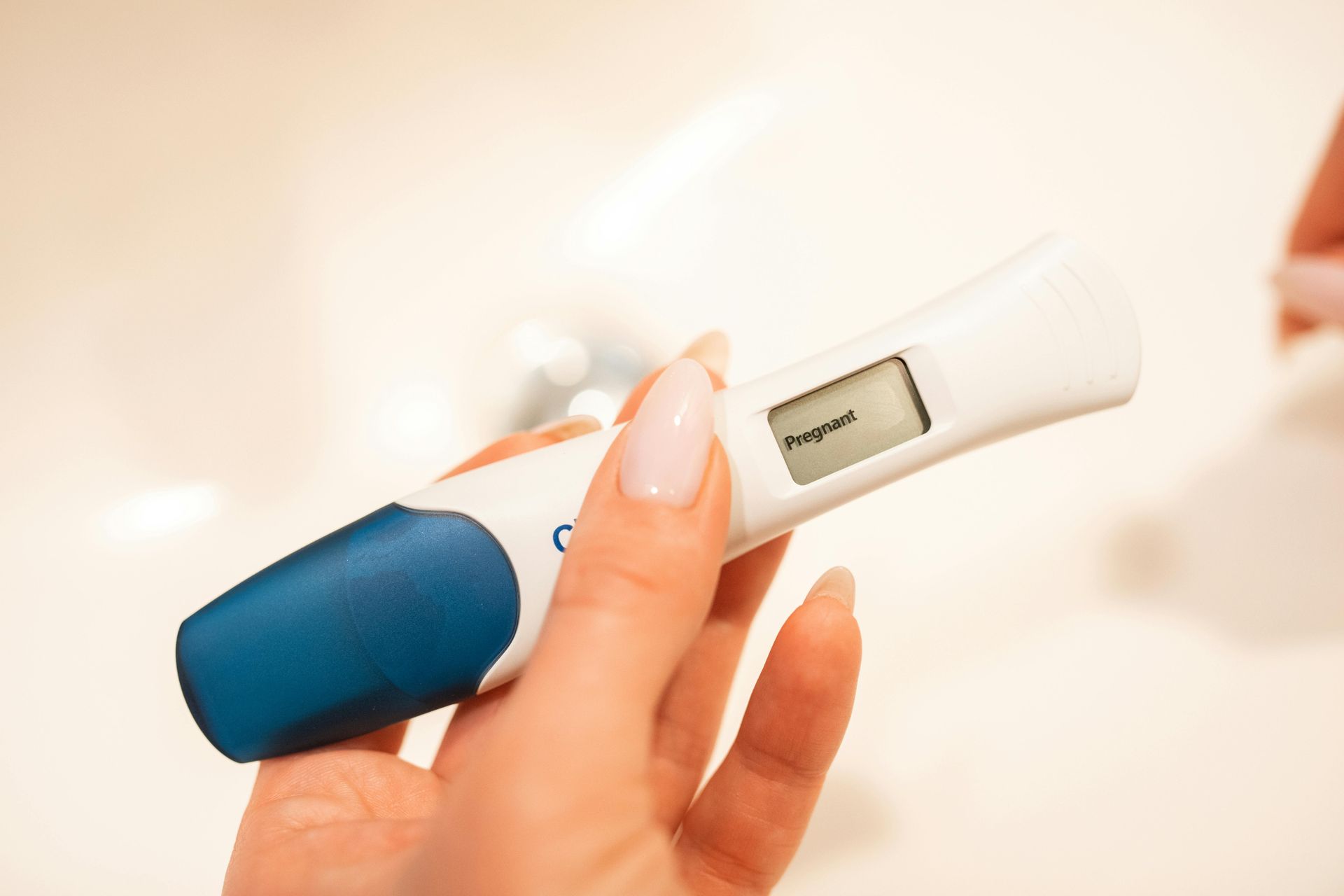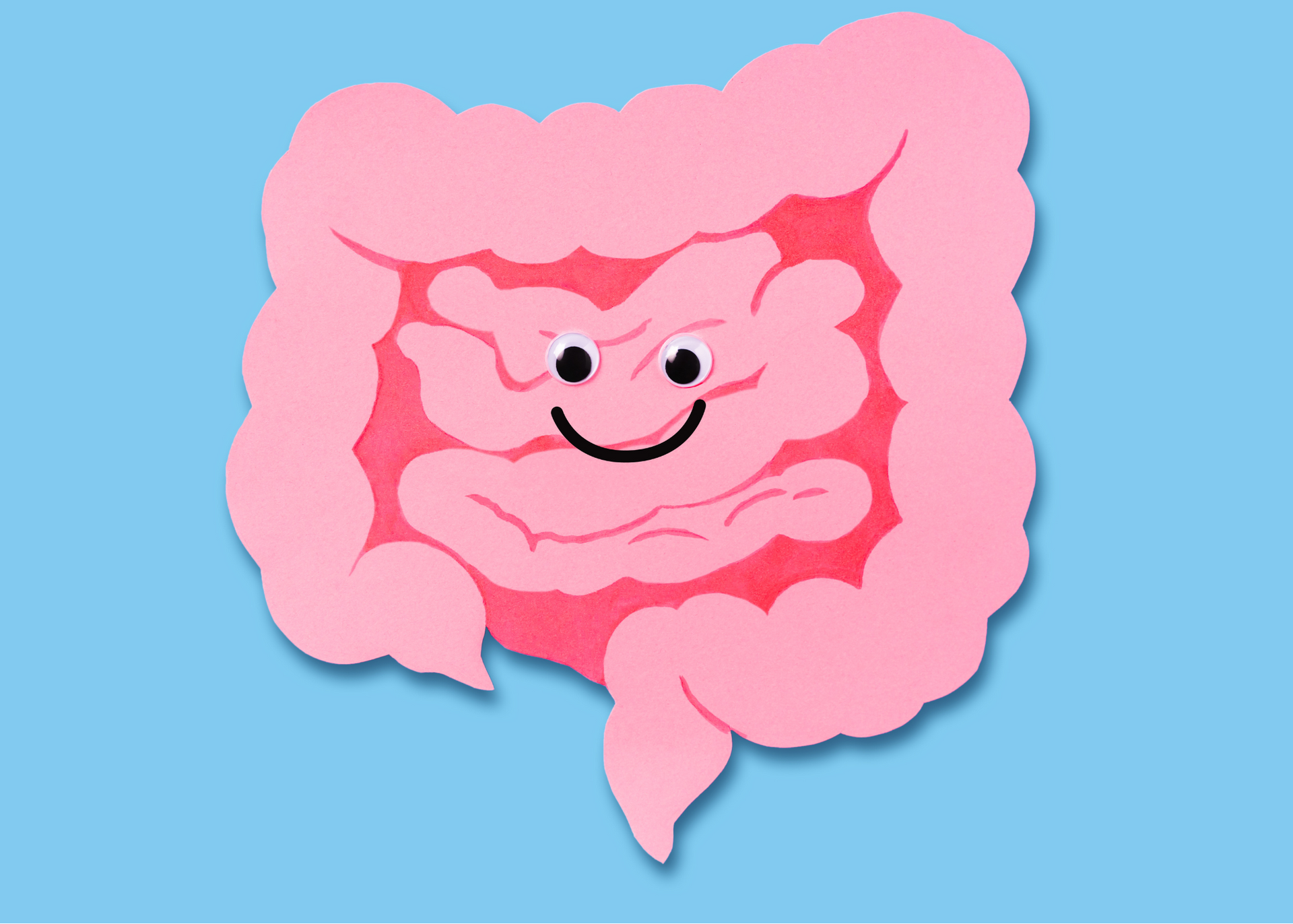Your Gut Health and Hormones: 7 Ways They're Connected

Gut health is a hot topic, and for good reason.
Our gut is connected to our mental health, immune system, inflammation levels, skin health, and more.
But one connection isn’t talked about enough - the connection between gut health and our hormones.
I specialize in
both gut health and hormone balance because you can’t effectively specialize in just one.
You can’t have a healthy gut with imbalanced hormones, and you can’t have balanced hormones with an unhealthy gut.
Tons of research shows poor gut health can increase the risk of hormonal issues like PMS, acne, low energy, PCOS, estrogen dominance, endometriosis,
infertility, and even breast cancer.
In this article, we’ll cover:
- An overview of the gut
- Constipation and hormone imbalance
- Gut Inflammation and hormone imbalance
- Nutrient Deficiencies and Hormone Imbalance
- The estrobolome
- Gut health and thyroid hormones
- Gut health and blood sugar hormones
- Gut health and adrenal hormones
What is the Gut?
You may have heard about gut health, but what exactly is it?
The “gut” refers to the organs in your gastrointestinal tract, which you can think of as one big long tube.
These organs include
- Oral cavity
- Pharynx
- Esophagus
- Stomach
- Small intestine
- Large intestine
- Anus
Digestion unfolds top-to-bottom. It begins the moment food enters your mouth and is followed by a complex process of mechanical and chemical digestion, until the waste your body doesn’t need is removed out the other end.
The digestive system has the amazing ability of orchestrating tons of digestive events so you can get the most nutrition out of the food you eat.
But research has shown us that the health of your gut is critical for way more than just digestion.
Like I mentioned before, a healthy gut means a stronger immune system, more balanced mood, less inflammation, healthier hormones, and more.
How can you tell if your gut is healthy? Check out this blog post [insert link] for three questions to consider.

The Connection Between Your Gut Health and Hormones
The relationship between gut health and hormone balance is complex, but I’m going to simplify things and show you the seven main ways they’re connected.
Constipation and Hormone Imbalance
I already shared how common constipation is for women in this article [insert link], but what does that have to do with our hormones?
Waste from the food we eat is removed from our body every time we have a bowel movement. But what a lot of people don’t know is, this is how we get rid of excess hormones too.
Constipation can disrupt this elimination process, allowing our body to reabsorb extra estrogen back into our bloodstream.
When estrogen levels get too high we develop “estrogen dominance”.
Estrogen dominance comes with unpleasant side effects like painful periods, weight gain, fibroids and infertility, and it increases our risk for breast cancer, ovarian cancer and endometrial (uterine) cancer.
Estrogen dominance can also negatively affect our thyroid hormones, which comes with even more negative side effects.
This connection also works in reverse - hormonal imbalances can contribute to constipation.
Oftentimes constipation and hormonal imbalances feed off each other, snowballing into bigger problems and more intense side effects. For example,
hypothyroidism can lead to constipation and that constipation can allow estrogen to recirculate in the body which leads to
estrogen dominance.

Gut Inflammation and Hormone Imbalance
Gut inflammation can impact hormone balance by triggering a cascade of reactions that disturb the intricate balance of the hormone system.
When the gut is inflamed, it can set off the immune system and create inflammation throughout the entire body.
Chronic inflammation has been linked to disruptions in cortisol levels, sex hormones such as estrogen and testosterone, and thyroid hormones. These imbalances contribute to a range of health issues, including adrenal fatigue, reproductive problems, and thyroid dysfunction.
Emerging research shows that some of the
gut microbiome can promote inflammation while others actually reduce inflammation. Striking the right balance in the gut microbiome can support lower inflammation levels and healthier hormones.
Nutrient Deficiencies and Hormone Imbalance
We aren’t just what we eat, we are what we absorb.
The health of the gut affects how well we extract nutrients from food (and supplements)
and
the gut even makes some nutrients like vitamin K and some B vitamins.
Nutrient deficiencies can have a profound impact on hormone balance within the body, disrupting the network of signaling pathways and regulatory mechanisms. Vitamins and minerals play pivotal roles in the synthesis, activation, and regulation of hormones.
For example, vitamin D is crucial for the production of steroid hormones, including cortisol and sex hormones, while iodine is essential for thyroid hormone synthesis. When the body lacks these nutrients, it can impact hormone balance.
Nutrient deficiencies may lead to reduced hormone production, altered receptor sensitivity, and impaired feedback loops, affecting hormone balance. This imbalance can manifest in various ways, such as disrupted menstrual cycles, adrenal fatigue, or thyroid dysfunction.
A well-balanced and nutrient-rich diet is key for supporting optimal hormone production and function, but maintaining a healthy gut is equally important so that all those healthy foods don’t go to waste.

The Estrobolome
The term "estrobolome" refers to the collection of microbes in the body, including bacteria in the gut, that influence estrogen metabolism.
The estrobolome influences how estrogen is processed, leading to either an increase or decrease in active estrogen levels.
Balanced gut bacteria means a healthier estrobolome.
An unhealthy estrobolome from imbalanced gut bacteria is associated with various health issues, including
estrogen dominance, hormonal disorders, and an increased risk for estrogen-dependent cancers like breast cancer.
Gut Health and Thyroid Hormones
Gut health is crucial for your thyroid health because the gut is responsible for absorbing nutrients like iodine, selenium, and zinc that are needed for thyroid hormone production.
A healthy gut also supports the conversion of inactive thyroid hormones (T4) to the active form (T3).
If the right healthy gut bacteria aren’t present, then the thyroid hormones aren’t activated and it can contribute to hypothyroidism. Symptoms of a sluggish thyroid include fatigue, weight gain, cold sensitivity, dry skin and hair, depression and brain fog.
80% of our immune system is housed in our gut, so if the gut isn’t healthy our immune system is compromised.
Poor gut health is linked to autoimmune diseases including Hashimoto’s thyroiditis, an autoimmune disease that causes the immune system to attack and damage the thyroid.

Gut Health and Blood Sugar Hormones
Gut health has a significant influence on our body’s ability to keep our blood sugars stable.
A well-balanced gut microbiome contributes to efficient nutrient absorption and helps regulate the release of hormones, such as insulin, that control blood sugar levels.
Leaky gut and imbalanced gut bacteria can both contribute to inflammation and insulin resistance.
This may lead to elevated blood sugar levels which causes weight gain and increases your risk of PCOS, endometriosis, and other forms of hormonal imbalance.
Gut Health and Adrenal Hormones
The adrenal glands, which produce stress hormones like cortisol, play a crucial role in the body's response to stress.
When you’re stressed and your cortisol levels go up, this creates inflammation in the gut, increases intestinal permeability (aka “leaky gut”), and even changes the composition of your gut microbiome (and not in a good way).
On the flip side, a compromised gut, marked by gut bacteria imbalances or inflammation, can signal stress to the body, prompting the adrenal glands to release cortisol.
This can create a vicious cycle leading to even worse gut health and even worse stress levels.
The Power of Your Gut Health
80% of women will experience a hormone imbalance at some point in their life. Many women are waking up to the fact that birth control isn’t the answer because of its scary side effects.
I used to struggle with both digestive issues and hormone issues, and I was amazed by the power of healing my gut to address both issues at once.
I’ve worked with hundreds of women to help them rebalance their hormones naturally, and including gut health support has been life changing for so many of them.
If you’re struggling with symptoms of hormone imbalance and you haven’t addressed your gut health, this is your sign to start.
If you need help,
I’m here for you!
Want to know if your gut needs some TLC? Check out my next blog where I share the three questions to ask yourself to determine if your gut is healthy.
Continue Reading













